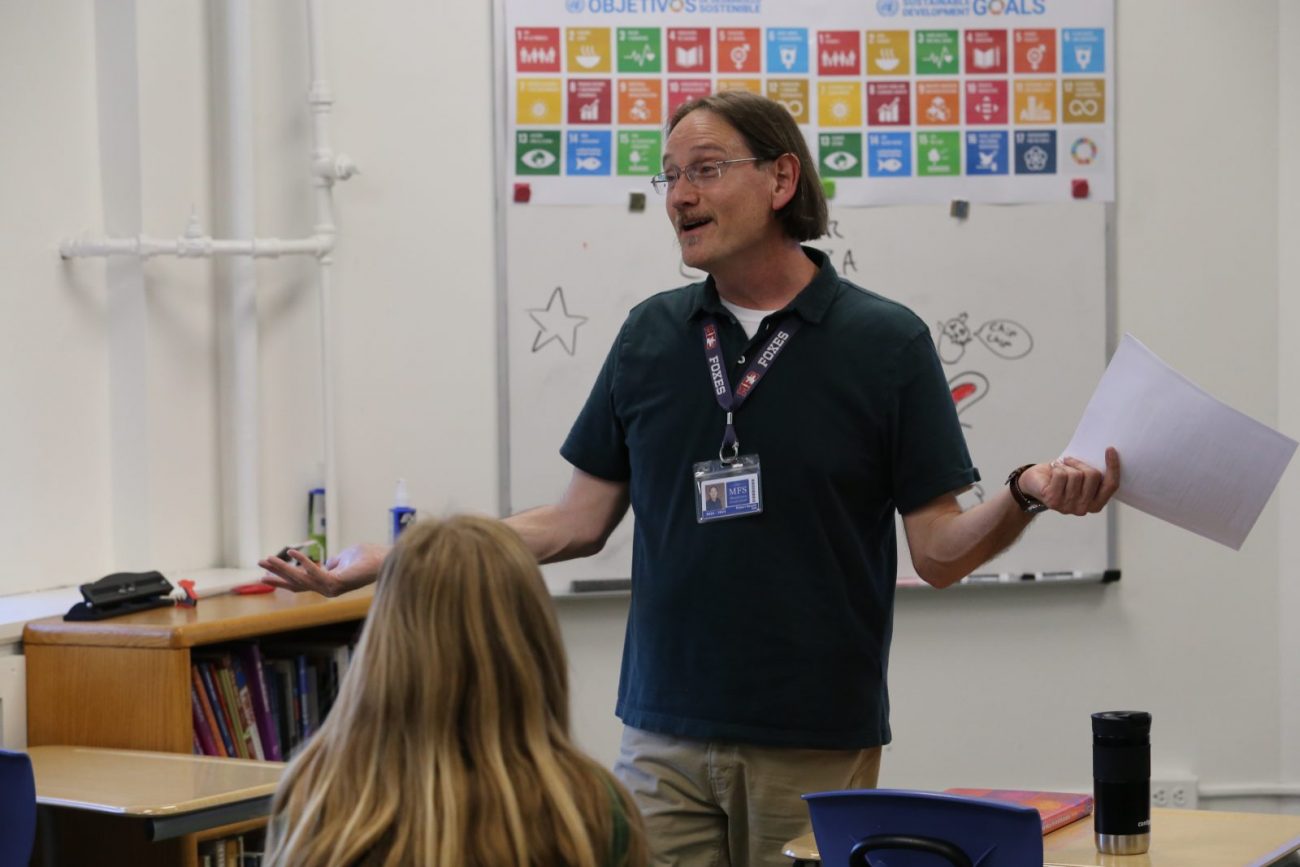World Languages Chair Has Book Published Chronicling Cuban Singer/Songwriters
 This Summer World Languages Department Chair Rob Nasatir saw his book Trovadores cubanos: Nueva Trova y Canción Cubana Contemporánea (translated: Cuban Troubadours: Nueva Trova and Contemporary Cuban Song) published.
This Summer World Languages Department Chair Rob Nasatir saw his book Trovadores cubanos: Nueva Trova y Canción Cubana Contemporánea (translated: Cuban Troubadours: Nueva Trova and Contemporary Cuban Song) published.
The book is about Cuban singer/songwriters since the 1959 revolution, with a focus on more contemporary artists (since the fall of the USSR). The first half of the book is history and analysis, the second half consists of interviews with six contemporary artists. The book was originally supposed to be published in 2020 but due to a paper shortage and other economic troubles in Cuba, the date was pushed back. With COVID and inflation, the book was again pushed back to Spring 2022 and published as an e-book before hard copies were finally published in July.
Rob was always very interested in music, playing in bands during high school and college. He attended Belmont University in Nashville for his undergraduate education – he holds a B.A. in English. He stayed in Nashville to complete two degrees from Vanderbilt University: a M.A. in comparative literature and a Ph.D. in Spanish. “Through that work, I became really interested in Cuban literature, Cuban poetry, and musical settings.”
As someone always interested in literature, poetry, and music, Rob gravitated toward Caribbean music. In 2001, while a grad student at Vanderbilt, Rob took the first of what is now more than 20 trips to Cuba. “That trip was a life-changer for me,” said Rob. The U.S. Treasury allows travel to Cuba for research purposes and Rob’s doctoral dissertation focused on Cuban songwriters over the past 70 years. When in Cuba, Rob is often invited to the stage to share American Folk and Blues songs – singing and playing slide guitar – as part of an ongoing exchange of musical ideas.
“Cuban music was especially interesting to me and was jam-packed with talent,” commented Rob. “Their singer/songwriter movement was also a protest movement, similar to what was seen in the U.S. in the 1960s. These artists were under a totalitarian regime and used metaphor to tell their stories.”
Rob’s dissertation chronicled the ways that these songwriters navigated this tension through their work from the 1960s all the way up to the present. “These artists are still alive, still working, staying in Cuba,” he said. “They could have left the island, but they have stayed and tried to change things.” His book includes interviews with Cuban artists Gerardo Alfonso, Frank Delgado, Santiago Feliú, Samuel Águila, Ariel Díaz, and Charly Salgado.
Before teaching at the secondary level, he worked as an Assistant Spanish Professor and served as the Associate Director of the W.E.B. DuBois Honors Program at Fisk University in Nashville. Prior to MFS, Rob worked at Father Ryan High School in Nashville, where he taught all levels of Spanish and served as the world language department chair. Rob’s transition to teaching occurred during graduate school when he was required to teach a Spanish 101 course every semester. He immediately fell in love with teaching and eventually was hired at Father Ryan where he taught for nine years.
He was appointed World Languages Department Chair at MFS in 2016. “I love the fact that I can bring in these many different things that excite me and share them with my students,” said Rob. “Conversely I love allowing the students to bring what interests them into the classroom”
He provided an example of using the music of Bad Bunny to explore what is happening with the power outages in Puerto Rico. “All of these conversations are happening in Spanish, which is great,” said Rob.
Rob particularly builds this type of subject matter into his more advanced classes, like Spanish IV and V. “Last year, we talked about Afro-Cuban poet Nicolas Guillen and issues of race and identity and we were able to talk about those issues in the classroom and then listen to a musical setting of his most famous poem: ‘Tengo.’”
Known as “Profe,” Rob sums all of this up succinctly: “The students forget they are speaking Spanish, they are just communicating.”
Click here to purchase Trovadores cubanos: Nueva Trova y Canción Cubana Contemporánea on Amazon.
